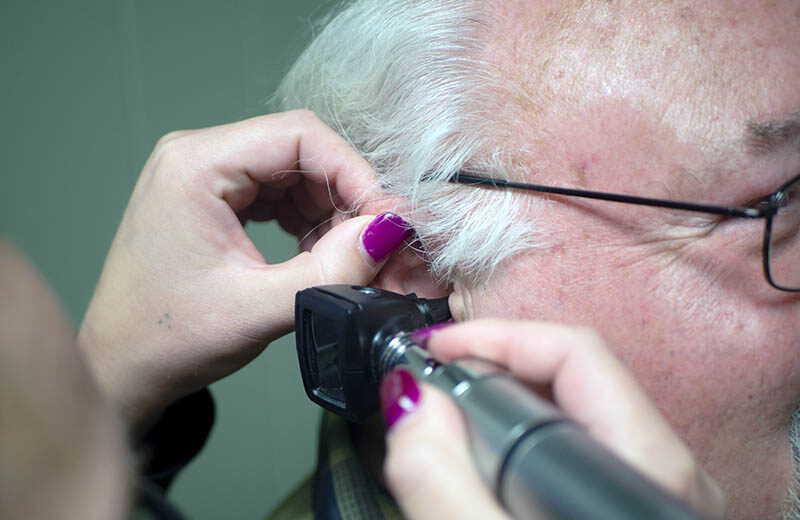Hearing is a crucial component of life, barring cases of profound deafness. It enables effective communication with others, facilitates learning about the surroundings, and alerts individuals to potential threats. Unfortunately, with the passage of time, hearing, like other physiological functions, tends to deteriorate. However, there are a range of medical interventions available, from in-ear hearing aids to cochlear implants, that can help mitigate this issue. It is important to note that this decline in hearing need not be endured in silence. Knowing when it is time to see a doctor about hearing loss is crucial. Consultation with a medical professional can offer insights into the options available to address this issue.
Do you struggle with hearing loss? Otolaryngologists are here to help. They provide high-quality hearing care and audiology services that can address your needs. However, since hearing loss can be a gradual process, it might not always be clear when you should seek medical attention. To assist you in this regard, we have created an informational guide that you can refer to.
Do I Need to See A Doctor About Hearing Loss?
How the Hearing Process Works
Sound waves travel through the outer ear and stimulate the eardrum, which in turn vibrates. The resulting vibrations are then amplified by three diminutive bones in the middle ear before reaching the cochlea, a spiral-shaped system in the inner ear filled with fluid. Within the cochlea, nerve cells are equipped with microscopic hairs that enable the conversion of these vibrations into electrical signals, which are subsequently sent to the brain. The brain then decodes these signals as sound.
Causes of Hearing Loss
Hearing loss can arise from various sources, the most widespread culprit being the natural aging process. Another major contributor is excessive noise exposure, such as listening to music at high volumes. Regrettably, hearing loss from noise exposure is irreversible through medical or surgical intervention. Therefore, safeguarding your ears from loud noises is vital to prevent hearing loss.
Several other reasons can also lead to hearing problems. Some of these include genetics, too much earwax, use of certain medications, infections like otitis media, which can cause excessive fluid in the middle ear, and medical conditions such as diabetes, Meniere’s disease (which results in excess fluid in the inner ear), and otosclerosis (where bony growths in the middle ear restrict vibrations).
Issues with Waiting for Treatment
Many individuals may experience difficulty hearing in specific situations but are reluctant to seek help for an average of seven years. Waiting may be attributed to a sense of denial, where they fear taking a hearing test and discovering a loss of hearing, or they may overlook the problem if it does not significantly affect their daily routine.
It is imperative to address hearing loss promptly. Early diagnosis yields better outcomes for treatment, as is often the case with medical conditions. Additionally, hearing loss has a significant impact on one’s quality of life. Struggles with communication can lead to feelings of isolation and depression, while studies have shown that untreated hearing loss may be associated with cognitive decline. However, treating hearing loss can enhance cognitive performance, particularly regarding memory.
If you’re unsure whether your hearing loss requires medical attention, ask yourself the following questions. Do you frequently ask people to repeat themselves? Do you find it challenging to hear conversations in loud settings, such as restaurants and parties? Do you often feel like others need to speak more clearly or mumbling? Do you regularly turn up the volume on your TV? Do you struggle to hear people on the phone? Do you have difficulty understanding dialogue in movies? If you answered “yes” to any of these questions, it’s essential to get your hearing checked by a doctor.
What Can An Otolaryngologist (ENT) Do About My Hearing Loss?
Otolaryngologists, also referred to as ENT specialists, are well-trained medical experts who specialize in the diagnosis and treatment of a variety of conditions and illnesses that concern the ear, nose, throat, and surrounding structures of the head and neck. ENT specialists offer a broad range of specialized services to help manage various ear-related issues.
Once an ENT team assesses the severity of your hearing loss, they can recommend a specific treatment or device that suits your needs. Your treatment plan may include any of the following:
– The use of antibiotics for ear infections.
– The removal of earwax blockage to restore hearing.
– The use of hearing aids to strengthen sounds.
– Surgery is required to install cochlear implants, remove scar damage from otosclerosis or infection, and treat Meniere’s disease.





